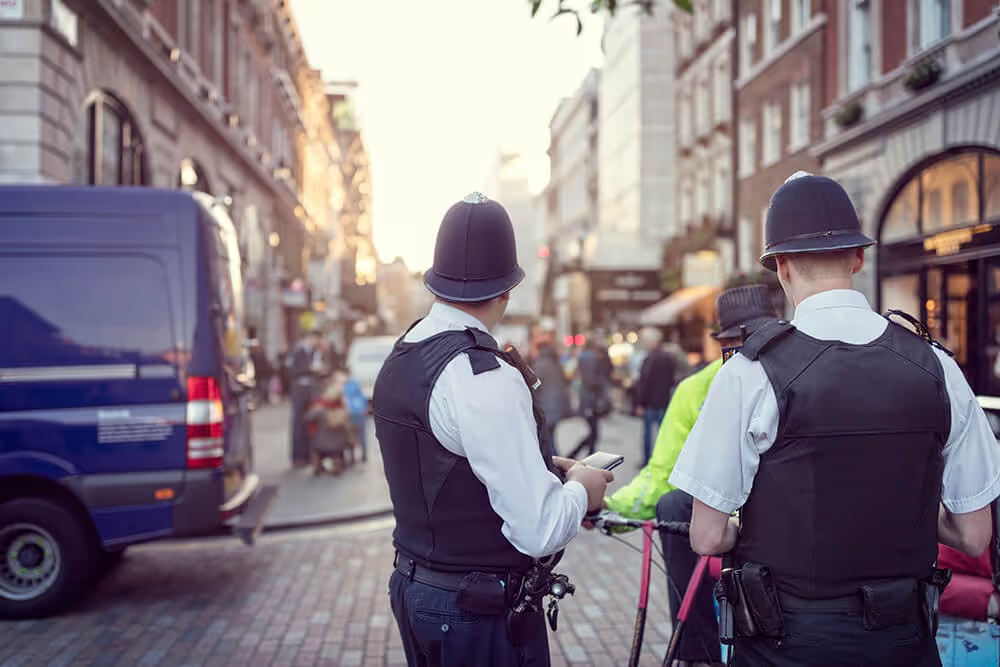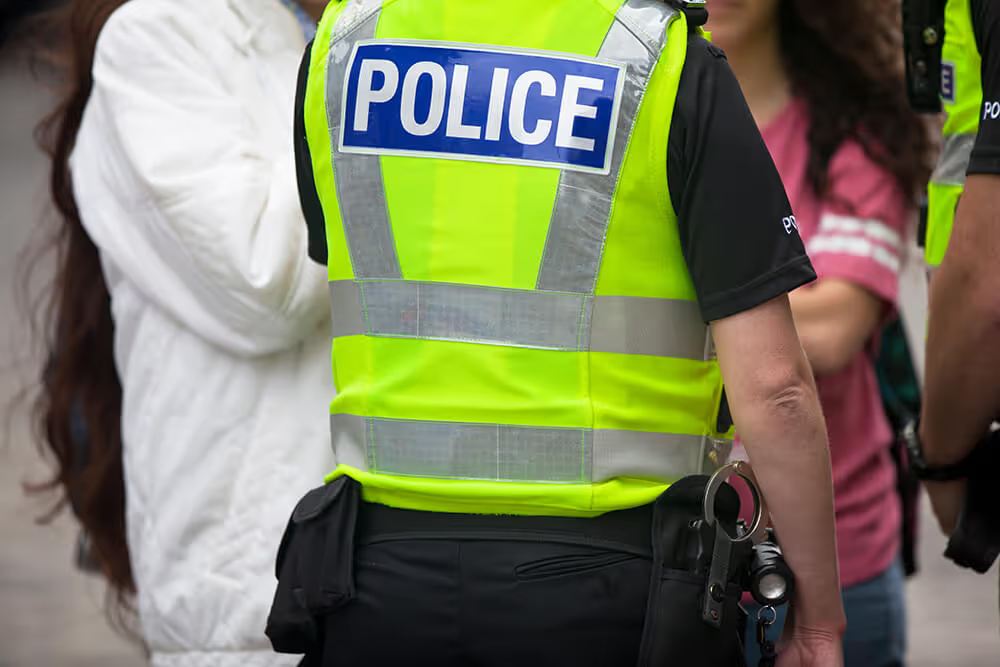Know Your Rights: Stop and Search in the UK


Few police powers spark as much debate as stop and search in the UK. Supporters argue it helps reduce crime and keeps the public safe.
Critics say it can seem intrusive, unfair, and sometimes biased. The truth lies somewhere in between. While warrantless searches are real, they are also limited by law. As a result, many people misunderstand what officers can and cannot do.
The police cannot search anyone at any time. Stop and search powers state that they must follow strict rules. In theory, these balance crime prevention with civil liberties. Unfortunately, there is an ongoing debate on the overall efficacy of the strategy.
In this article, the experts at Holborn Adams will explain how stop and search works, outline your police search rights in the UK, and show how to respond lawfully and assertively if you are stopped. We will also explain why early legal advice can make the difference between a lawful encounter and a serious breach of rights.
What is Stop and Search?
A stop and search happens when a police officer asks you to stop in a public place and checks your person, vehicle, or belongings. It is not an arrest, but it can still be intimidating.
The legal basis comes mainly from the Police and Criminal Evidence Act 1984 (PACE). The goal of stop and search in the UK is to prevent and detect crime, not to allow for unreasonable searches and seizures.
According to the UK Home Office, police carried out over 547,000 stop and searches in England and Wales in 2022–2023. Drugs were the most common reason for searching people. Other reasons include potential stolen property. Notably, only about one in five searches led to further police action.
When Can Police Stop and Search You?
For a stop and search to be lawful, the police usually need “reasonable suspicion.” They need good reasons to believe you have illegal drugs, a weapon, stolen items, or anything that could be used to commit a crime. Suspicion cannot be based on your race, clothing, or general appearance.
However, there are situations where suspicion is not required. Under Section 60 of the Criminal Justice and Public Order Act 1994, senior officers can authorise searches in a specific area for a limited time.
Still, this only applies if they believe serious violence may occur. The Terrorism Act 2000 also allows broader search powers in certain circumstances. However, these powers are heavily scrutinised due to their potential impact on civil liberties.
Crucially, the law draws a distinction between targeted searches based on suspicion and blanket powers. In every case, officers must act proportionately and only when necessary. Anything beyond this could be a breach of your rights. That is why it is so important to know your rights under UK law.

Your Rights During a Stop and Search
Even if the police have grounds to search you, you are not powerless. In the UK, all individuals have clear police search rights that officers must respect.
- The officer must identify themselves. This means providing their name, badge number, and the station where they are based.
- The officer must tell you the legal basis for the search and explain what they are looking for.
- You have the right to receive a written record of the search. This document is important, as it can later help you challenge the search if it was not lawful.
- Officers cannot require you to remove more than your outer coat, jacket, or gloves in public. More intrusive searches, such as removing other clothing, must take place out of public view and follow strict procedures.
- Police cannot search private property without a warrant, unless very specific exceptions apply.
Remember, protecting rights during a search starts with knowing what they are.
How to Respond During a Search
Being stopped by police can be stressful, but how you respond matters. The safest approach is to remain calm and cooperative. Arguing or resisting may escalate the situation and could even lead to charges for obstruction.
That does not mean you cannot stand up for yourself. Indeed, lawful assertiveness is encouraged. You are entitled to ask why you are being searched, what law the officer is relying on, and for a written record afterwards.
However, it is important not to obstruct the search, even if you think it is unlawful. Instead, note details such as the officer’s name, the time, and what was said. All of these steps can help protect your rights and give you evidence if the search is later challenged.
Common Issues and Misuses of Stop and Search
One of the most serious concerns regarding stop and search is what some have called a disproportionate targeting of minority communities. Government figures show that Black people are nearly seven times more likely to be stopped and searched than White people in England and Wales.
This has long raised questions about racial profiling and fairness.
Other common issues include officers failing to provide a proper explanation for the search, neglecting to give written records, or relying on blanket powers at large public events or protests. Such actions can erode public trust and may breach stop and search rules.
For high-profile individuals, the reputational impact can be significant. Being searched in public (even if no wrongdoing is found) can attract unwanted media attention and speculation. This is where legal representation is crucial, not only for challenging unlawful searches but also for protecting reputation.
What Happens If Stop and Search Leads to Arrest?
A stop and search does not always end with arrest, but it can if the police believe they have found evidence of a crime. However, the threshold for arrest is different from that of a search. To arrest, police must reasonably suspect you are involved in a crime and that an arrest is necessary, for example, to prevent harm or to secure evidence.
You should keep in mind that if you are arrested, your rights increase. For instance, you have the right to remain silent and the right to free and independent legal representation. However, anything you say can be used in evidence, so having a solicitor present is vital.
Understand that evidence gathered during a search may play a role in whether the Crown Prosecution Service decides to press charges. Once again, seeking early legal advice and pre-charge representation can be crucial, and may even prevent charges from being filed at all.
Challenging Unlawful Stop and Search
Not every stop and search is carried out in a lawful manner. Grounds for challenge include:
- Lack of reasonable suspicion
- Discriminatory behaviour
- Breaches of pace and other laws
- Improper Use of “Smell of Cannabis”
- Relying too much on Section 60 Powers
If a search is found to be unlawful, the courts may exclude any evidence obtained from it. You can also make a formal complaint against the police or even bring a civil claim for damages. In some high-profile cases, unlawful searches have led to evidence being excluded entirely, resulting in the collapse of entire prosecutions.
That said, acting quickly is vital. The sooner a solicitor is involved, the easier it is to gather evidence and challenge the search. Delay may allow unlawful practices to go unaddressed.
How Holborn Adams Protects Clients in Stop and Search Cases
At Holborn Adams, we specialise in early intervention. If you are stopped and searched, or if that search leads to arrest, our team can provide immediate advice to protect your rights.
Our solicitors are highly experienced in challenging unlawfully obtained evidence, particularly in high-profile and complex cases. Our record shows that with expert legal help, most cases can be resolved early and quietly.
Our role is to shield our clients from both legal and personal harm. That could mean preventing charges, excluding evidence, or negotiating outcomes with the authorities.




